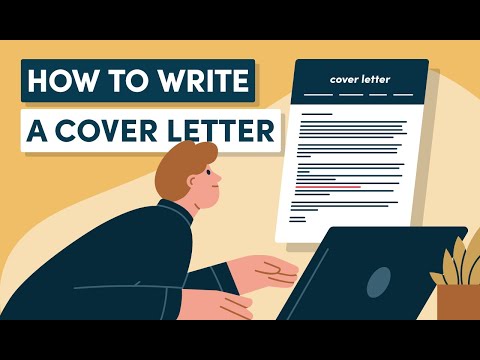
Writing a strong cover letter can make a big difference when applying for a job, as it provides you with an opportunity to showcase your enthusiasm, skills and why you're a good fit for the role.
Tips to help you write a compelling cover letter:
1. Personalise It
- Address the right person: Whenever possible, address your cover letter to a specific person (e.g., hiring manager, recruiter). Avoid generic greetings like "To whom it may concern." You can often find the hiring manager's name on the company's website or LinkedIn.
- Customise the content: Tailor the letter for each job application, highlighting your skills and experience that align with the specific job description and company needs.
2. Use a Professional Format
- Keep it brief: Your cover letter should be one page, typically 3-4 paragraphs.
- Include contact information: Start with your contact information at the top (name, phone number, email) and the company's contact information.
- Formal tone: Keep your tone professional but approachable. Avoid overly casual language, but don’t make it too stiff either.
3. Draft a Strong Opening
- Introduce yourself clearly: Start with a strong first sentence that grabs attention. Mention the position you’re applying for and where you found the job listing. You can also include a line about why you’re excited about the role or company.
- Set the tone: Express enthusiasm and briefly mention your top qualifications.
4. Highlight Your Skills and Experience
- Match your experience to the job: Focus on one or two key qualifications that make you an ideal fit for the position. Use specific examples of past achievements that demonstrate how you can add value to the company.
- Show your passion for the company: Research the company and show that you understand its values, mission and culture. Explain why you’re interested in working there and how you align with their goals.
- Be results-oriented: When possible, use numbers or concrete examples to demonstrate your successes. For example, “Increased sales by 30% within six months” is more impactful than just stating that you “increased sales.”
5. Focus on the Company’s Needs
- What can you offer them?: Instead of just talking about your skills, focus on how you can solve the company’s problems or contribute to its success. Show that you understand the company’s challenges and how your skills can help address them.
6. Be Concise and Clear
- Avoid fluff: Don’t repeat information from your resume or include unnecessary details. Be clear and direct in your writing.
- Use active voice: Keep your language engaging by using active voice rather than passive voice (e.g., "I led a team of five" instead of "A team of five was led by me").
7. Show Enthusiasm
- Convey enthusiasm for the role: A cover letter should convey excitement and interest in the position. Let your personality shine through, but still maintain professionalism.
- Express your commitment: Mention your eagerness to bring your skills to the company and your willingness to contribute to the team.
8. End Strong with a Call to Action
- Express your desire for an interview: End the letter by expressing your interest in discussing the position further in an interview.
- Thank them: Thank the hiring manager for considering your application. Be polite and express your excitement about the opportunity.
- Professional closing: Use a professional closing such as "Sincerely" or "Best regards," followed by your name.
9. Proofread and Edit
- Check for spelling and grammar errors: A well-written cover letter shows attention to detail. Use a spell-check tool, and read it several times before submitting.
- Ask for feedback: Have someone else review your cover letter to catch any errors you might have missed and ensure it’s clear and concise.
10. Keep the Focus on the Employer
- Remember the employer’s perspective: While it’s important to highlight your skills, remember that the cover letter is about how you can benefit the company. Make sure to position yourself as someone who can add value to their team.
By following these tips and focusing on both your qualifications and how they relate to the company’s needs, you can craft a compelling cover letter that makes you stand out to employers.
